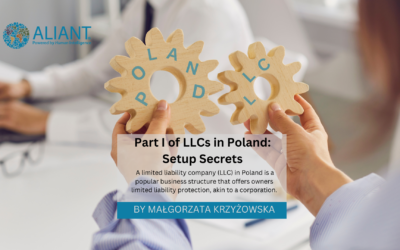Investigations into companies and individuals that have reached the point of no return can be undertaken for a number of reasons:
– Regulatory Investigations
– Corruption or Bribery allegations
– Investigations arising from contentious insolvency matters
– Electronic fraud allegations
– Cross border asset recovery
– E-Discovery Investigations
All these types of matters can arise at any time, varying in both size and scale, from low thousands to multimillion dollar collapses, whether at the hands of the entry level employee, the chief financial officer, or the managing director of the organisation, each requires the same methodical, careful but swift response.
Regardless of who may be at fault, the key to successful insolvency investigations is the speed to which a response is given. Delays can lead to loss of evidence and the prompt recovery of any potential assets that may exist, witnesses to any events that occurred prior to, during or shortly thereafter may move on, and the chances of better e-discovery with the potential destruction of important material such as accounting records, emails, statements, invoices to name just a few are significantly reduced the longer it takes to respond.
Working closely with both litigators and insolvency practitioners, the moment a case of this nature comes in, it is important to develop a legal and investigative strategy which meets the needs and expectations of all parties. A working group should be immediately established so that the important tasks can be identified, allocated and carried out and reported back on in a timely manner.
I-OnAsia has been operating in the asset recovery and insolvency investigations arena for more than 20 years and providing the granular detail behind people and organisations has been critical in the success of many cases where I-OnAsia’s team has supported insolvency practices and litigators all over the world.
Oliver Laurence of I-OnAsia and Sandip Patel QC of Aliant Law both believe that the more successful cases are the ones where more than just the normal investigations and legal analysis is carried out.
It is easy to locate where people live and then obtain land registry documents to demonstrate a residential asset. Those that do wrong and have planned for the fallout know this, and expect that that is where investigators, lawyers and insolvency practitioners will go looking first, for a quick win.
Thus, failing to identify anything else which may identify an elaborate pattern of life filled with expensive jewellery, fast cars, crypto currencies, and trips to the Caribbean on private aircraft, all of which may demonstrate that there is far more out there than what has been provided on paper.
Mr Patel QC and Mr. Laurence have undertaken a number of investigations together where Aliant have instructed I-OnAsia on some of the more complex and dynamic insolvency and asset tracing matters.
I-OnAsia’s in house cyber analysis capability, ‘Heat Seeker’ is what sets them apart from other firms of their type in the market, says Mr. Patel QC. The ability to go deeper, reviewing social media accounts, offshore companies and shareholdings in locations well beyond the UK borders, gives the team, Aliant and myself as legal counsel, every confidence that no stone has been left unturned in the investigation process to better understand a person’s global footprint of assets and their life patterns prior to, during and after an insolvency matter comes to light.
At Aliant, we are often instructed with developing the legal strategies around these matters, and when there are allegations of a criminal nature be it fraud, bribery, or corruption internally it’s important for us as legal practitioners to obtain the most information which is going to better inform our decisions as to the next steps in the legal process outlines Mr. Patel QC.
The time an insolvency matter can take can vary from case to case, but what doesn’t change is the manner in which it is reported so that it can be understood, supported with diagrammatises which show a workflow that can be easily digested by the reader, and that both the legal team and the investigations team with an insolvency practice have compiled all the information that is needed to ensure a comprehensive set findings can be reached by all.
There are many occasions where a company’s tragic transition into insolvency is not at the hands of foul play, mismanagement or greed. The global pandemic is an example of a perfect storm that sadly affected a number of business sectors where long periods of lockdowns, and minimal global travel, had a significant impact of the profitability of many companies resulting in the unexpected and unplanned failure of once successful businesses.
These occasions still require the same careful and quick response to minimise the damages and knock-on effects, and having a good team to support this process means that not only will it be carried out efficiently, but, if allegations of any nature are made, they will be carefully examined, the information captured in the appropriate manner and reported on.
Sandip Patel QC FCIArb
Sandip Patel QC FCIArb is managing partner at Aliant Law London, a practising barrister at 33 Bedford Row, London, who practices in international and cross-border commercial law. He advises clients across a range of industries and geographies providing proactive and commercial legal counsel on a broad range of corporate transactions including restructuring, insolvency, and asset tracing.
Sandip has extensive domestic, international and cross-border experience in regulation and investigations across a number of key industry sectors including financial institutions; energy; infrastructure, mining and commodities; transport; technology and innovation; and life sciences and healthcare.
Oliver Laurence
I-OnAsia’s European, London director, Mr. Oliver Laurence was Britain’s Investigator of the Year in 2019/20, after securing the release of an Australian businessman on death row in Singapore.
Mr. Laurence is a former police officer with an extensive background in law enforcement in the Asia Pacific, having spent nearly 20 years in the region in various law enforcement roles, and then transitioning into professional standards lead investigation’s role for the Federal Government of Australia. Today, Mr. Laurence runs a specialist office in the UK, Europe and Australia that includes access to sophisticated cyber analysis tools, phone forensic analysis, and is supported by I-OnAsia’s 50 strong in-house team in both Hong Kong and New York City.
“Oliver is an asset to any company looking at issues of integrity and internal governance. I’ve seen Oliver work in situations where he is tried and tested by environment and circumstance, and he never failed to deliver a service and product that didn’t meet or exceed expectations. “I cannot recommend highly enough.” – L. Mitchell Head of ABF Intelligence ‘Op Sovereign Borders’




